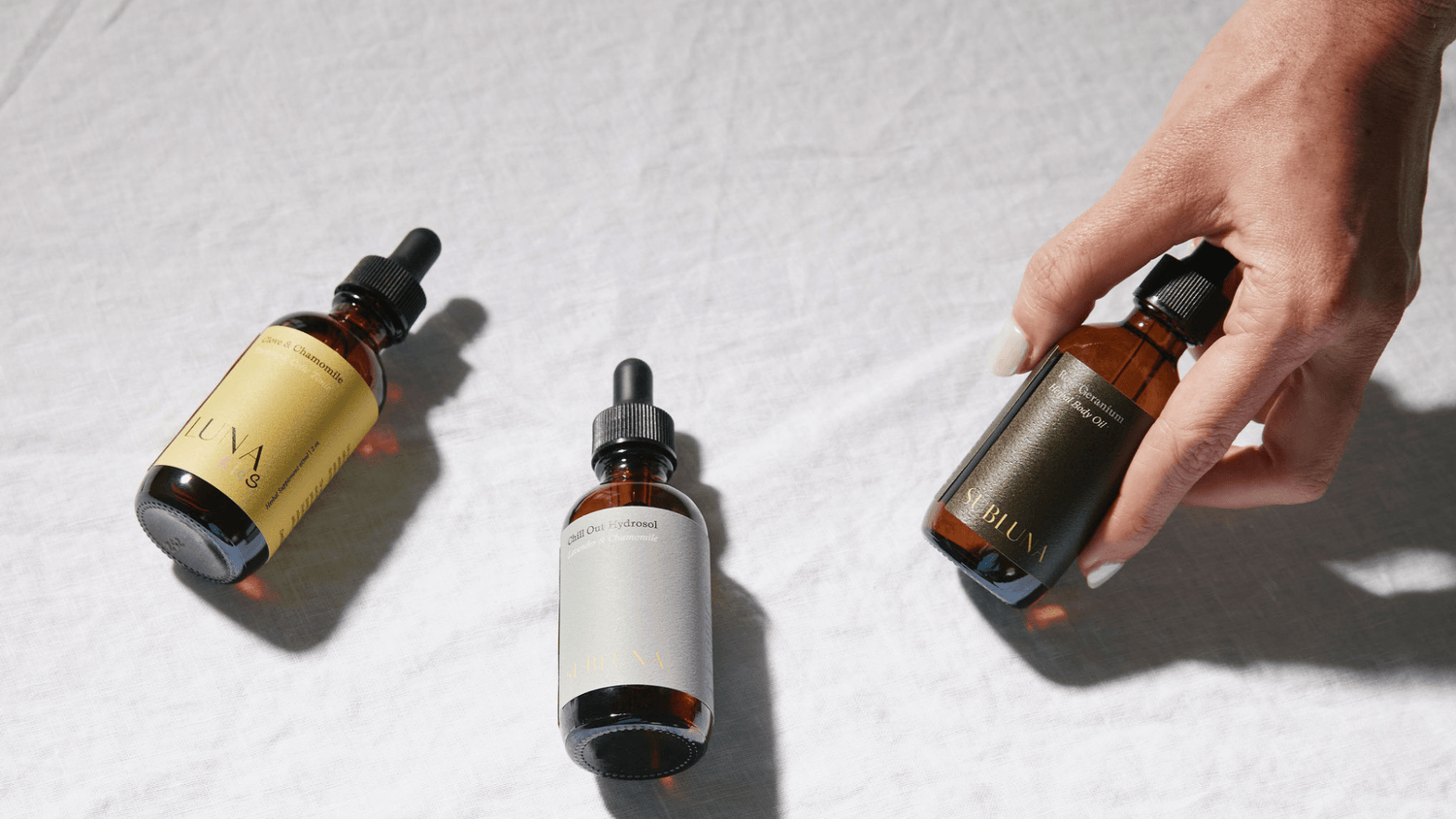Topical Herbal Rituals for Natural Beauty
In a world that often encourages us to conceal, fix, and alter our appearance, embracing beauty as a ritual of reclamation offers a powerful shift. Modern beauty standards can disconnect us from our natural rhythms, making beauty seem like something to achieve rather than an inherent part of who we are. True beauty isn’t about erasing imperfections but about honoring, enhancing, and adorning what already exists.
Herbs have long played a central role in beauty rituals, not to force our bodies into submission, but to nourish, balance, and reveal our natural radiance. By working with plants for skincare, scalp health, and hair care, we enter into practices that deepen our connection to both ourselves and the natural world. These herbal allies support a holistic approach to beauty, allowing us to step into our sovereignty with confidence and care.
Skincare Herbs: Nurturing Your Largest Organ
Our skin is the largest organ of the body and serves as an external reflection of our internal health. Supporting the skin with herbs means addressing essential aspects like hydration, inflammation, microbial balance, and cellular renewal—key factors in maintaining a clear, vibrant complexion. Whether in oil infusions, hydrosols, masks, or toners, these herbs harmonize with your skin’s natural rhythms.
Cellular Regeneration & Longevity
Herbs like Tremella, Gotu Kola, and Reishi deeply hydrate the skin, promoting elasticity and resilience. These herbs support collagen production and cellular renewal, ensuring that skin remains youthful and vibrant.
Antimicrobial Support
Calendula, Wild Bergamot, Yarrow, and Echinacea are powerful allies in preventing breakouts and soothing irritated skin. These herbs help fight bacteria while supporting the skin’s natural microbiome for healthier, balanced skin.
Increased Cellular Turnover
Comfrey and Plantain are known for encouraging new skin growth and aiding in wound healing. They’re perfect for scar reduction and tissue repair, promoting a smoother, more even complexion.
Inflammation & Redness
Herbs like Turmeric, Marshmallow, and Willow Bark work to calm irritation and puffiness, reducing redness and supporting an even skin tone. These herbs help balance out inflammation, making them great for sensitive skin.
Scalp & Hair Growth Support: A Foundation for Healthy Hair
A healthy scalp is essential for vibrant, strong hair. Just as healthy soil is needed for plants to thrive, your scalp requires proper hydration, circulation, and microbial balance to support hair growth and prevent imbalances like dandruff or dryness. These herbs nurture both scalp and hair health by addressing specific concerns.
Dandruff (Yellow Flakes, Fungal-Related)
Herbs like Calendula, Yarrow, Wild Bergamot, Ginger, Eucalyptus, Pine, Turmeric, Oregano, Sage, and Black Walnut help combat fungal imbalances on the scalp. They soothe irritation and promote a refreshed, clean feeling.
Dry Scalp (White Flakes, Dehydration-Related)
Marshmallow Leaf, Comfrey, Aloe, Oatstraw, Chamomile, and Calendula provide deep hydration, nourishing the scalp to soothe itchiness and flakiness. These herbs also support healthy oil production, preventing dryness and restoring balance.
Hair Growth Stimulation
Herbs like Rosemary, Reishi, Caffeine, Hibiscus, Green Tea, Mint, and Ginger enhance blood circulation to the hair follicles, strengthen strands, and encourage thicker, fuller hair over time.
The No-Poo Method: Herbal Hair Cleansing
Traditional shampoos often strip away natural oils, leaving hair dry and brittle. Herbal hair cleansing methods, however, help maintain the scalp’s natural protective barrier while keeping the hair clean and healthy.
Plant-Based Herbal Cleansers
Herbs like Soapwort, Rhassoul Clay, Shikakai Powder, Soapnuts, Horse Chestnuts, Bracken Ferns, Clematis, and Shampoo Ginger provide gentle cleanses without disrupting the scalp’s natural oils, making them ideal for those transitioning to a no-poo method.
Vinegar Rinses
Apple cider vinegar, kombucha vinegar, and white vinegar, infused with herbs and diluted in water, help restore shine, detangle hair, and balance the scalp’s pH. Depending on the herbs used, these rinses can also support scalp health, regulate oil, and even enhance natural hair color.
Natural Hair Coloring: Enhance, Don’t Damage
For centuries, people have turned to plants to enhance and change hair color naturally. Unlike chemical dyes that can damage the hair cuticle, herbal hair coloring nourishes and strengthens the strands while gradually depositing color.
Indigo – Creates deep blue or black tones when combined with Henna.
Henna – Imparts warm red or orange hues while also strengthening hair.
Cassia – Adds golden and yellow tones while conditioning hair.
Amla – Provides neutral beige hues and supports overall scalp health.
For temporary color enhancement, strong herbal rinses can gradually build pigment over time. Herbs like Black Walnut, Black Coffee, Chamomile, Calendula, Butterfly Pea Flower, Violet, Avocado Skins, Hibiscus, Turmeric, and Mullein all offer color-enhancing properties that complement different hair tones.
Grey Hair Support: Embrace Natural Vibrancy
Greying hair is a natural part of aging, but it is often associated with mineral depletion and oxidative stress. Instead of trying to reverse greying, herbal support can help enhance and maintain vibrancy while replenishing nutrients that support healthy pigmentation.
Internal Support
Herbs like He Shou Wu and copper-rich plants such as Nettle help replenish minerals and support melanin production, fostering naturally vibrant hair.
Topical Rinses
Herbs like Sage, Black Tea, Coffee, Mullein, and Amla help darken greys and restore depth to natural hair color over time. For those with silver tones, blue or violet herbs like Butterfly Pea Flower or Lavender can enhance and complement those shimmering hues.
Sovereign Beauty as a Ritual
Herbal beauty is not about fixing or controlling; it’s about honoring your body’s natural rhythms and celebrating its inherent beauty. By incorporating these herbs into your daily rituals, you can transform beauty routines into acts of self-love, empowerment, and connection with nature.
May these herbal allies support you in creating beauty on your own terms—rooted in sovereignty, self-care, and a deep reverence for the natural world.



